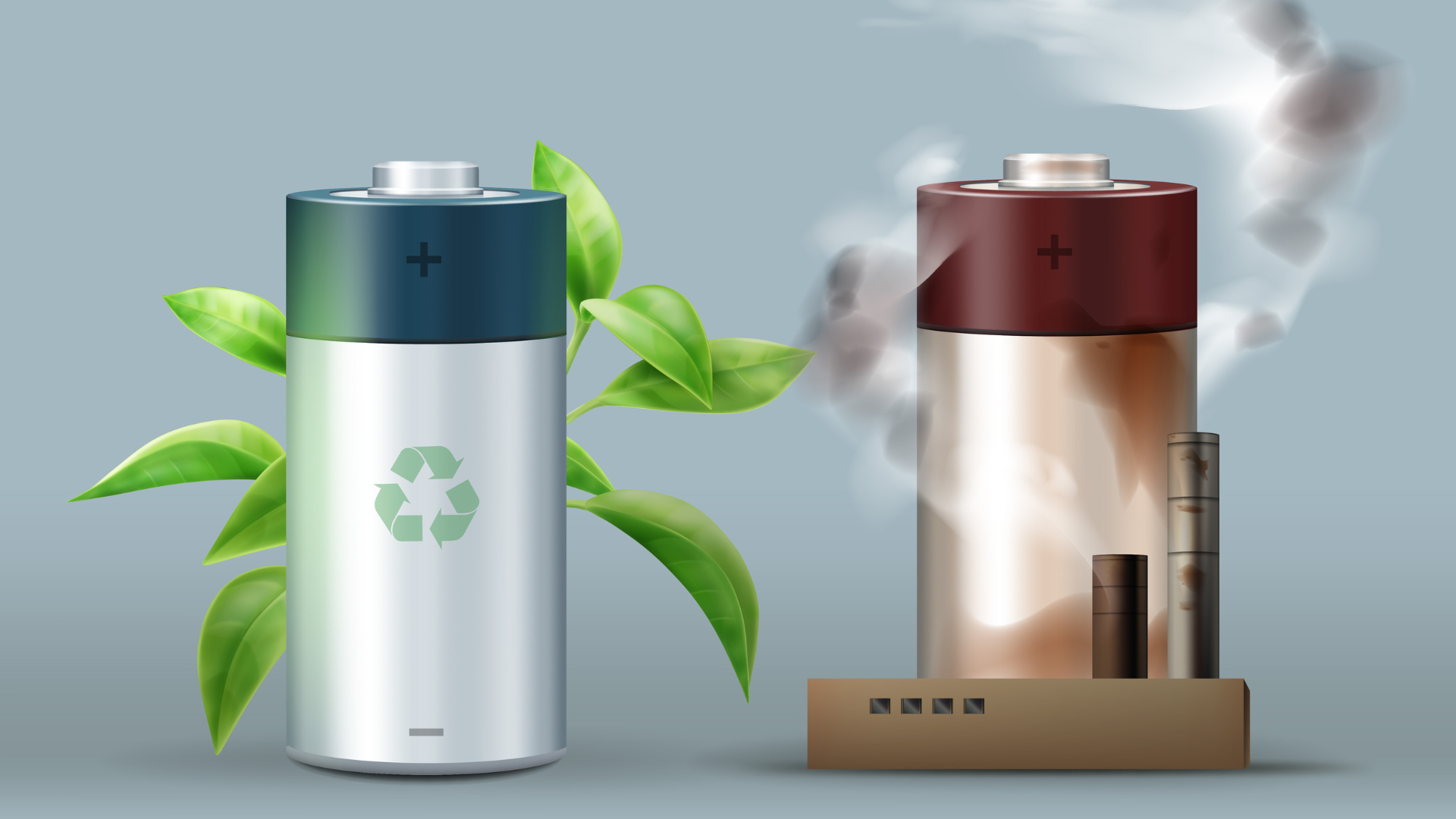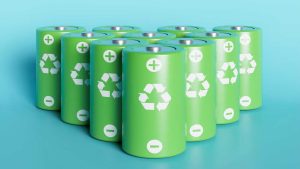![]()
Harnessing the Power of Lithium-Ion Battery Recycling in India for a Greener Tomorrow: In recent years, the surge in demand for electric vehicles (EVs) and the widespread use of portable electronic devices have exponentially increased the production and consumption of lithium-ion batteries. While these batteries play a pivotal role in driving sustainable energy solutions, their widespread use raises concerns about environmental impacts and the depletion of valuable resources. However, establishing lithium-ion battery recycling plants in India presents a promising solution to mitigate these impacts and pave the way for a cleaner and more sustainable future.
1. The Environmental Footprint of Lithium-Ion Batteries:
Lithium-ion batteries, while heralding a new era of clean energy, pose environmental challenges. The extraction and processing of raw materials like lithium, cobalt, and nickel contribute to habitat destruction, water pollution, and human rights concerns. Additionally, improper disposal of used batteries can result in the release of toxic substances into the environment, further exacerbating the ecological footprint of these batteries.
2. The Urgent Need for Recycling:
Given the rising demand for lithium-ion batteries recycling has emerged as a crucial strategy to minimise environmental harm and maximise utilising finite resources. With its burgeoning population and rapidly growing electric vehicle market, India stands at the forefront of this challenge. Establishing efficient recycling plants is not just a matter of environmental responsibility but a strategic move to secure the supply chain of critical battery materials.
3. Economic Opportunities and Job Creation:
The establishment of lithium-ion battery recycling plants in India can unlock a host of economic opportunities. These plants require skilled labour for operations, maintenance, research, and development. The recycling industry can create jobs, foster economic growth, and support local communities. Moreover, by extracting valuable materials from used batteries, recycling plants can reduce the country’s dependence on costly imports of raw materials.
4. Reducing Environmental Pollution:
One of the primary benefits of lithium-ion battery recycling is preventing environmental pollution. Improper disposal of batteries often leads to the leakage of hazardous substances into soil and water, posing a threat to ecosystems and human health. Recycling plants can effectively contain and manage these toxic materials, preventing their release into the environment and safeguarding terrestrial and aquatic ecosystems.
5. Energy Conservation:
The recycling process offers significant energy savings compared to the extraction of raw materials. Recovering lithium, cobalt, and nickel from used batteries requires less energy than mining and processing these materials from scratch. By incorporating recycled materials into the production of new batteries, the overall energy consumption and carbon footprint associated with battery manufacturing can be substantially reduced, contributing to India’s broader sustainable development goals.
6. Addressing Resource Scarcity:
The finite nature of the Earth’s resources, particularly critical battery materials, necessitates a shift towards a circular economy. Recycling plants can play a pivotal role in conserving these resources, ensuring their responsible and efficient use. By extracting and reusing materials from end-of-life batteries, these plants create a closed-loop system, reducing the need for continuous mining and lessening the environmental impact associated with resource extraction.
7. Technological Innovation and Research:
Investing in lithium-ion battery recycling plants fosters technological innovation and research in battery management and material recovery. Researchers and engineers working in these plants can develop advanced methods to enhance the efficiency of recycling processes, improve material recovery rates, and explore alternative more sustainable and environmentally friendly alternative materials. This culture of innovation can spill over into other industries, driving a broader technological revolution.
8. Government Initiatives and Policy Support:
To realise the full potential of lithium-ion battery recycling, the Indian government must formulate and implement supportive policies. Incentives for companies investing in recycling infrastructure, tax benefits for using recycled materials in battery manufacturing, and strict regulations on the disposal of batteries are essential components of a comprehensive policy framework. Government support can create a conducive environment for the growth of the recycling industry and encourage businesses to adopt sustainable practices.
9. Public Awareness and Education:
Public awareness and education campaigns are crucial in garnering support for battery recycling initiatives. Initiatives highlighting the environmental impact of improper battery disposal and emphasising the importance of recycling can encourage individuals to dispose of their used batteries responsibly and create a recycling culture. Collaborations between government bodies, private enterprises, and non-profit organisations can play a vital role in disseminating information and educating the public.
10. International Collaboration:
In the global context, collaboration with international partners can enhance India’s capabilities in lithium-ion battery recycling. Knowledge exchange, technology transfer, and joint research efforts can accelerate the development of advanced recycling technologies and methodologies. Collaborative efforts can also lead to establishing global standards for battery recycling, ensuring a consistent and environmentally friendly approach worldwide.
Conclusion:
Establishing lithium-ion battery recycling plants in India is not merely a solution to a local problem but a crucial step towards global environmental sustainability. By mitigating the environmental impacts of battery production and disposal, these plants contribute to a cleaner and healthier planet. Moreover, the economic opportunities, job creation, and technological innovation stemming from the recycling industry position India as a leader in the transition towards a circular economy. As the demand for lithium-ion batteries continues to rise, investing in recycling infrastructure becomes not just a choice but a necessity for a greener and more sustainable future. Through proactive government policies, public awareness campaigns, and international collaboration, India can pave the way for a circular economy that ensures the responsible use of resources and minimises the ecological footprint of modern technology.





